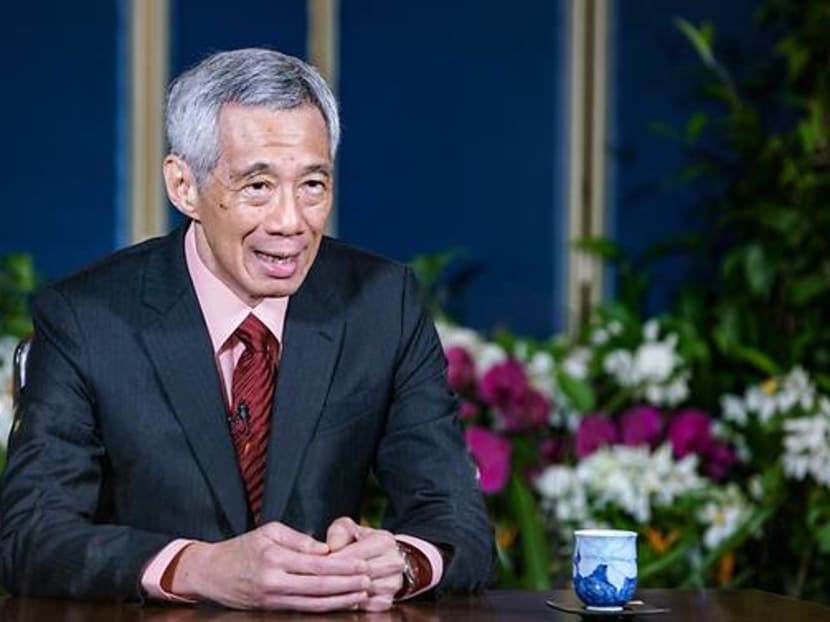Rules-based multilateral system is the ‘best hope’ to build stable international environment: PM Lee
SINGAPORE — A rules-based multilateral system, with the United Nations (UN) at the centre, is “our best hope to build a stable international environment”, Prime Minister Lee Hsien Loong said on Monday (Sept 21).

Singapore Prime Minister Lee Hsien Loong at the recording of his message for the High-Level Meeting to commemorate the 75th anniversary of the United Nations.
SINGAPORE — A rules-based multilateral system, with the United Nations (UN) at the centre, is “our best hope to build a stable international environment”, Prime Minister Lee Hsien Loong said on Monday (Sept 21).
Such a system has “given small states like Singapore a voice, and a stake in the global commons,” he said in a recorded speech during a high-level meeting commemorating the 75th anniversary of the United Nations. The meeting is being held virtually because of the Covid-19 pandemic.
“Major powers also benefit from a more peaceful and stable global environment, and when they take joint initiatives through multilateral institutions, it enhances their political legitimacy and moral authority.”
The world was changing even before Covid-19, Mr Lee said, citing growing geopolitical tensions and “fissures” in globalisation. He also said isolationism, protectionism and unilateralism were pushing back against multilateral institutions and international cooperation.
These issues became more evident due to the pandemic, but it “also reminded us how inter-connected and interdependent countries are and why we all need to work together to defeat the gravest challenge of our time”, he added.
However, recent trends such as the inability to achieve consensus on major issues and the conflicts affecting societies have also exposed the shortcomings of such institutions, he noted.
The Covid-19 pandemic, which emerged late last year, forced millions to stay at home and the closure of international borders, dealing a severe blow to economies worldwide.
The UN has struggled to enforce global cooperation on the issue. The UN General Assembly only adopted an omnibus resolution on a “comprehensive and coordinated response” to the pandemic earlier this month. The United States and Israel voted against the resolution, which included recognition of the World Health Organization's leadership role.
“We must work together to update and reform our multilateral institutions — including the UN — to keep the institutions open, inclusive, and fit for purpose, to reflect current economic and political realities, and to respond effectively to shared challenges of our time,” Mr Lee said.
Such challenges, he said, include pandemics, climate change, extremist-terrorism, sustainable development and cybersecurity.
“Member states expect a lot from the UN, and it is only right that we give the UN commensurate latitude, resources and mandate to fulfil its demanding mission,” he added.
Mr Lee also reaffirmed Singapore’s commitment to the future of the organisation and the values and ideals of the UN Charter.
“We are equally determined to work with all countries, including through the Forum of Small States which we helped to establish, to strengthen the UN,” he said. CNA
For more stories like this, visit cna.asia.






